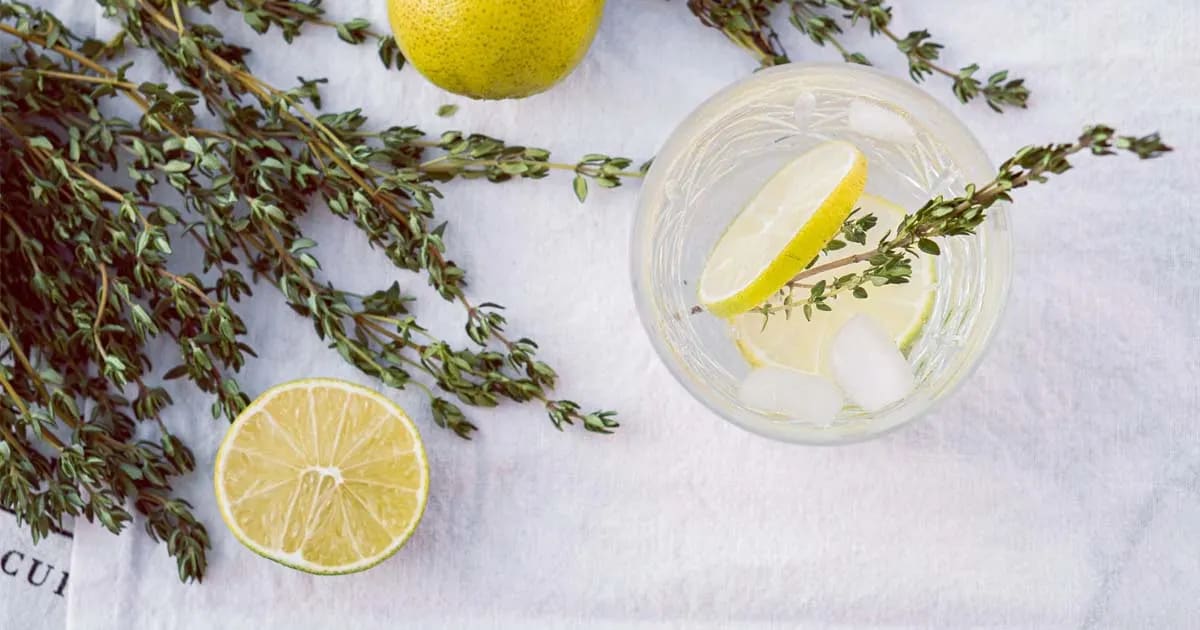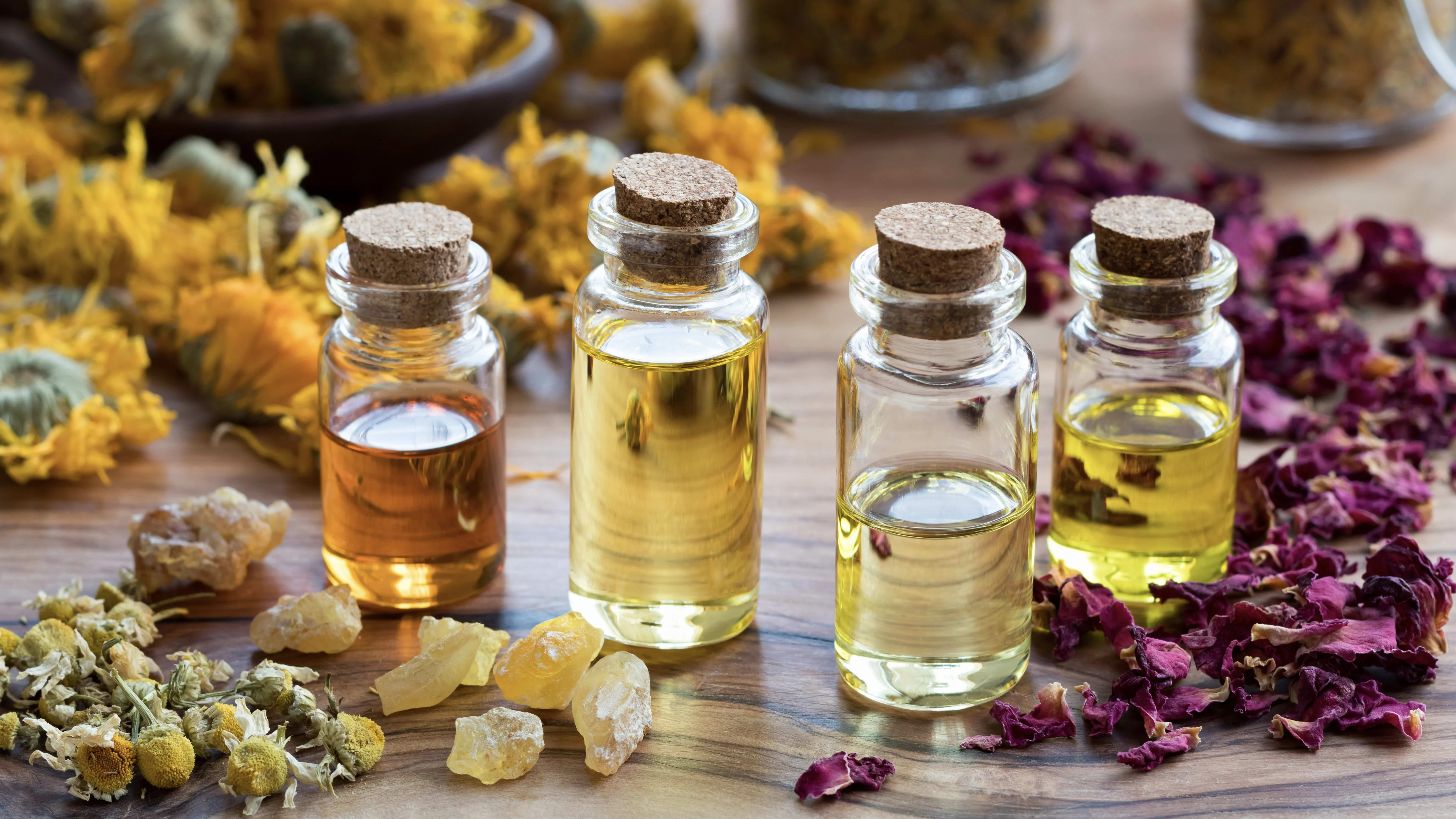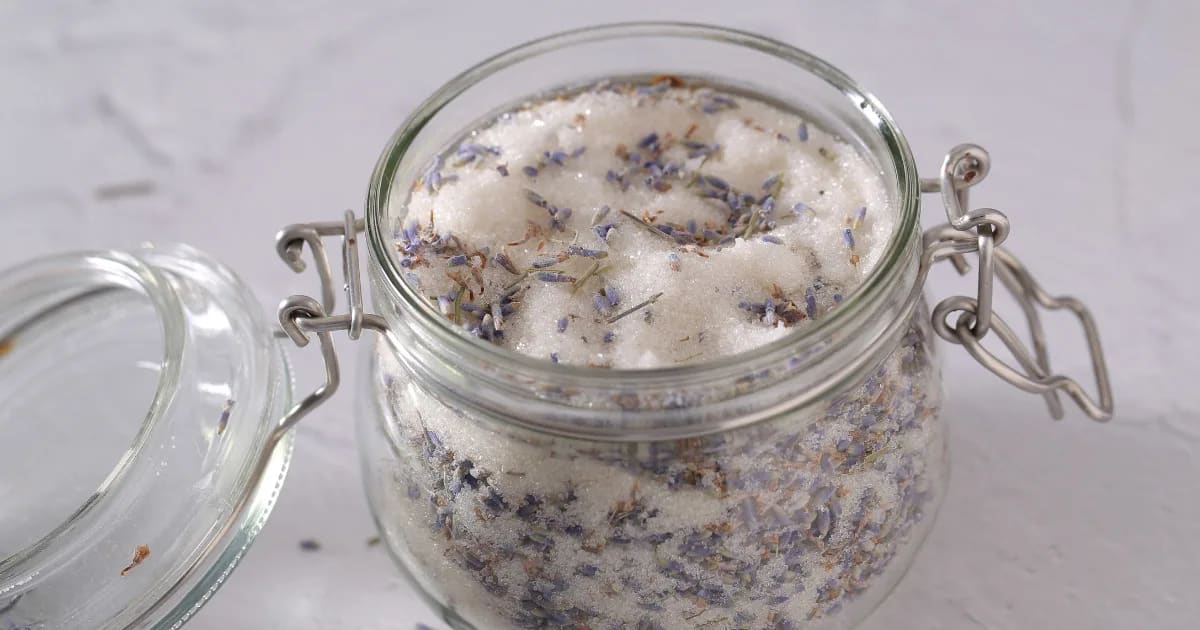DIY Hand Soap Recipes (And Why to Use Thyme Oil)

How to Make Hand Soap (and Why Thyme Essential Oil is the Perfect Ingredient!)
Before I get into the DIY hand soap recipes, I want to talk about Thyme essential oil, so you'll know why I'm focusing on it for cleansing skin and supporting health.
(If you want to go directly to the recipes, scroll down to the sub-headline, Thyme Hand Soap Recipes!)
Did you know that Thyme essential oil was used in field hospitals in WWI?
Salvatore Battaglia mentions this in his book, The Complete Guide to Aromatherapy.
He gives a quick explanation of how Thyme essential oil was used:
It was extensively used to medicate gauze and wool for surgical dressings. It resembles carbolic acid in its action, but it is less irritating to wounds and its germicidal action is greater.
Thyme has been used in similar ways throughout most of recorded history.
In Aromatherapy for Healing the Spirit, Gabriel Mojay says:
[The Ancient Greeks] used it to disinfect the air and prevent the spread of disease.
"So important was the herb's aroma that its name was culled from the Greek thymon, meaning 'to fumigate.' On the other hand, its name has also been linked to the Greek word thumon, meaning 'courage'—as the plant was associated with bravery. Indeed, Roman soldiers bathed in thyme before entering battle.
Thyme has been with us for thousands of years, offering health, courage, and the determination to thrive in challenging situations!
There are over 300 species of Thyme!
Many species produce their own unique varieties of essential oil.
These varieties are called "chemotypes."
They're all thyme oil... yet they have different "chemical types"and different characteristics.
Let's talk about two kinds of Thyme essential oil and how you can use them to support your health—especially when it comes to keeping your hands clean.
We'll touch on the following:
Thyme ct. thymol (Thymus vulgaris ct. thymol)
Thyme ct. linalool (Thymus vulgaris ct. linalool)
 Thyme ct. thymol
Thyme ct. thymol
(Thymus vulgaris ct. thymol)
The thymol chemotype of thyme is probably the most well-known. When people mention thyme essential oil, it's commonly this one they're referring to.
It contains high percentages of the component "thymol."
Thyme ct. thymol's aroma is potent, sharp, and herbal—almost "medicinal"(like Tea Tree).
Thyme ct. thymol is excellent for:
Reducing germs (on hands, in the air, and on household surfaces)
Supporting short-term immunity during the cold season
Soothing small cuts and scrapes (while protecting the area)
Encouraging warm circulation where it's applied
SAFETY NOTE: Thyme ct. thymol can be skin irritating, and may be too strong for people with sensitive skin, children, and pregnant women.
I prefer to use it for diffusing, room sprays, and natural cleaning blends.
If I do use it in a topical blend (including DIY hand soap), I stick with a VERY low concentration!

Thyme ct. linalool
(Thymus vulgaris ct. linalool)
The linalool chemotype of thyme is very different from the thymol one.
Instead of having high amounts of thymol, it's very rich in a component called "linalool."
You can use it for:
Reducing germs (on hands, in the air, and on household surfaces)
Supporting long-term immunity during the cold season
Soothing small cuts and scrapes (while protecting the area)
Encouraging cool circulation where it's applied
Thanks to its high percentage of linalool, this chemotype of Thyme has a softer herbal aroma.
Thyme ct. linalool is also much gentler on the skin than the thymol version, is cooling, and is perfect for DIY hand soaps. Linalool is actually one of the main components found in Lavender—the most famous skin-friendly essential oil in the aromatherapy world.
In fact, Thyme ct. linalool is so skin-friendly I don't hesitate to use it for children!
Now let's make some DIY hand soap recipes with Thyme essential oil!
Thyme Hand Soap Recipes!
Thyme & Lavender Foam Hand Soap (with a twist!)
40 ml Castile soap
5 drops Thyme ct. linalool essential oil (Thymus vulgaris ct. linalool)
5 drops Lavender essential oil (Lavandula angustifolia)
5 drops Lemon essential oil (Citrus limon)
Make this blend in a 50 ml PET foam soap bottle. (The bottle has a pump that creates the fluffy foam! The pump takes up some space, so we're not filling the bottle all the way with castile soap.)
Simply combine the castile soap and essential oils in the bottle, tighten the top, and shake gently.
This size is great to take on the go with you! You can wash your hands with your own powerful, DIY hand soap as often as you like—without putting too much stress on your skin.
Thyme & Mint Foam Hand Soap
40 ml Castile soap
5 drops Thyme ct. linalool essential oil (Thymus vulgaris ct. linalool)
5 drops Lavender essential oil (Lavandula angustifolia)
1 drop Peppermint essential oil (Mentha x piperita)
Make this blend in a 50 ml PET foam soap bottle. (The bottle has a pump that creates the fluffy foam! The pump takes up some space, so we're not filling the bottle all the way with castile soap.)
Simply combine the castile soap and essential oils in the bottle, tighten the top, and shake gently.
This size is great to take on the go with you! You can wash your hands with your own powerful, DIY hand soap as often as you like—without putting too much stress on your skin.
Thyme & Citrus Surface Spray Recipe!
Instead of using the skin-irritating Thyme ct. thymol in a DIY hand soap, let's use it to make a surface cleaner.
1 fl oz alcohol (190 proof such as Everclear)
3 fl oz Lemon Thyme hydrosol (Thymus x citriodorus)
20 drops Thyme ct. thymol essential oil (Thymus vulgaris ct. thymol)
15 drops Lemon essential oil (Citrus limon)
Make this DIY recipe in a 4 oz PET plastic spray bottle. Combine the alcohol and the drops of Thyme ct. thymol and Lemon essential oils in the bottle. Let set for up to 1 hr. until essential oils are dispersed into the alcohol. Then add the hydrosol. Close it up, shake well, and use it to clean your household surfaces.
(I suggest doing a spot test on a small, out-of-the-way area before using it on an entire surface.)
A great place to purchase organic 190-proof alcohol is the Organic Alcohol Company. Some states require a license to purchase high-proof alcohol that can be obtained through your .gov website.
To purchase your foamer bottle and other essential oils we recommend Aromatics International.
Now you can give yourself a boost of confidence and courage when you wash your hands—with your own DIY hand soap!





